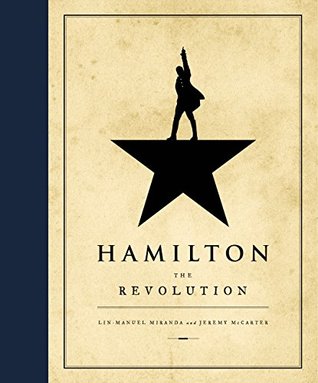More on this book
Community
Kindle Notes & Highlights
“Some of this is really smart dramaturgical work and some of this is like, I just forgot they hadn’t met yet.”
It’s no wonder that John Adams, who despised Hamilton, also despised the town and its citizens: “They talk very loud, very fast, and all together,” he complained before retreating to Massachusetts.
He hadn’t written a rapid-fire rap so an actor could show off, as in a Gilbert and Sullivan patter song. Her velocity expresses her brilliance, and her distress:
Hamilton goes full Jordan Catalano here.
I consider Do No Harm an ill-fated show but also my Hamilton Philadelphia Residency.
Okay, so Philip Schuyler really had loads of sons. I conveniently forgot that while I was writing this in service of a larger point: Angelica is a worldclass intellect in a world that does not allow her to flex it.
Oof. Tryin’ to out-Eponine Eponine up in this piece.
This is where watching every episode of The West Wing helps you be a better writer.
This is the kind of thing that happens in hip-hop but not so much in musical theater: breaking the rhyme scheme to highlight a different meaning of the word. Musical theater purists may scoff, but I love that Hamilton’s soliloquy here leads him to maturity:
Laurens actually was at the Battle of Yorktown. He didn’t head down to South Carolina until later. But I didn’t have time to explain that, so I moved him down there early. He spent much of the
John Adams, who lived long enough to see the legend taking root, begged us to remember that the country’s birth was painful, contentious, and not remotely finished when the British went home: “It was patched and piebald policy then, as it is now, ever was and ever will be, world without end.”
Also, I first heard “Screw your courage to the sticking place” in Beauty and the Beast, not knowing as a child that the great Howard Ashman was quoting Shakespeare. So it’s my nod to both.
Musicals depend on variety. Like republics, they need a multiplicity of voices to thrive.
The art of the compromise—9 BURR: Hold your nose and close your eyes. COMPANY: We want our leaders to save the day— BURR: But we don’t get a say in what they trade away. COMPANY: We dream of a brand new start— BURR: But we dream in the dark, for the most part. Burr, COMPANY: Dark as a tomb where it happens.
I’m perhaps proudest of these three couplets in the whole show: They encapsulate everything the number is about, are fully in character, and also speak to something fundamentally true about contemporary politics that I’d never been able to verbalize until these lines showed up.
“My view is that Hamiltonians existed until Teddy Roosevelt,” says Brooks. “Hamilton used limited but energetic government to create mobility, but after Roosevelt, the debate became big government versus small government, so the Hamilton tradition got caught cross-ways.”


